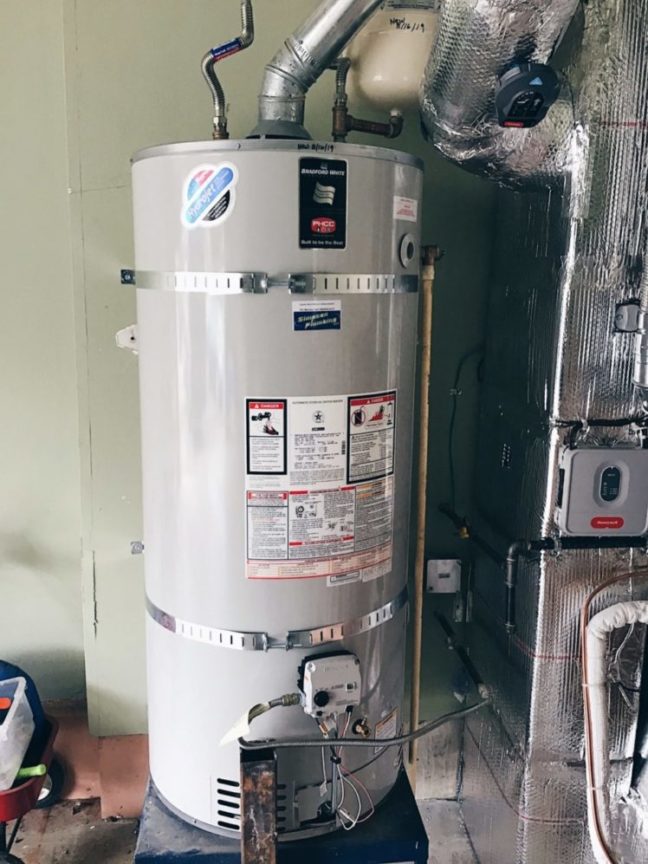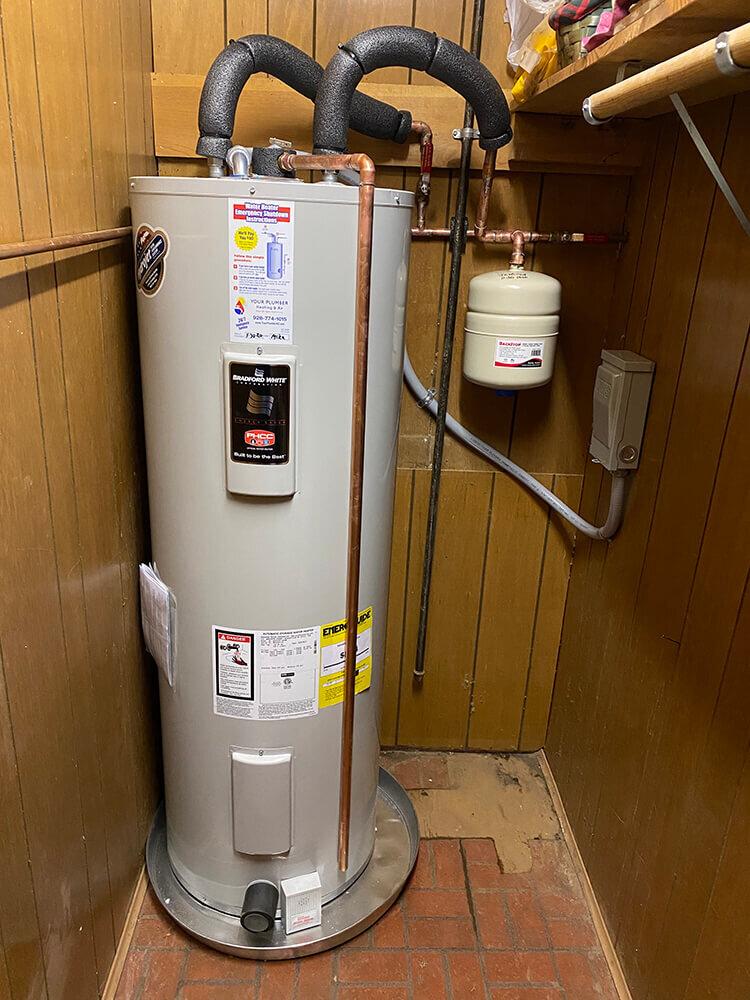Expert Water Heater Installation Services for Efficient Home Heating
Expert Water Heater Installation Services for Efficient Home Heating
Blog Article
Total Overview to Water Heating UnitInstallment and Substitute
Comprehending the intricacies of water heater installation and replacement is important for house owners looking for to make sure efficiency and dependability in their warm water supply. From choosing the appropriate kind and size to carrying out a seamless installation procedure, numerous factors need to be taken into consideration to prevent typical challenges.
Kinds of Water Heaters
When taking into consideration hot water heater setup and substitute, it is necessary to comprehend the numerous kinds of hot water heater available out there. One of the most usual types include container water heating units, tankless hot water heater, heatpump water heating systems, and solar water heating systems.
Container hot water heater are conventional systems that store a specific quantity of warm water, making them easily offered when required. They are generally cheaper ahead of time but might sustain higher energy expenses over time as a result of warm loss. On the other hand, tankless hot water heater offer warm water on demand, removing the demand for storage space. They are energy reliable and can save space, however their initial prices are commonly greater.
Heatpump hot water heater utilize electrical energy to transfer warm from the air or ground to warm water, providing significant energy cost savings yet requiring even more room and details setup conditions. Solar water heaters harness solar power to heat water, supplying a green choice with prospective long-term price financial savings, although they frequently require a back-up system for gloomy days.
Understanding these options ensures informed decisions pertaining to installment and replacement, dealing with certain demands and preferences.
Choosing the Right Size
Choosing the suitable size for a hot water heater is essential to make sure optimal performance and efficiency. An unit that is also small will struggle to meet house needs, causing inconsistent warm water availability and raised power consumption. Alternatively, an oversized water heating unit can lead to unnecessary energy waste and greater energy expenses.
To establish the best size, think about the family's top hot water use. This can be calculated based upon the number of passengers and their common hot water requirements. A family of four might call for a water heater with a capacity of 50 to 80 gallons, depending on the use patterns, such as simultaneous showers and washing.
Additionally, assess the recovery rate, which gauges exactly how rapidly a heating unit can renew hot water after it has been used. For tankless designs, focus on the flow rate, determined in gallons per minute (GPM), to guarantee it meets the household's simultaneous need.

Setup Process Overview

Next, the old unit needs to be disconnected and removed, taking treatment to comply with local codes and policies regarding disposal. As soon as the old device is out, the brand-new hot water heater can be placed in position. This step includes linking the water system lines, making sure that all fittings are safe and secure and leak-free.
After developing water connections, it's crucial to connect the power supply, whether electrical or gas, following the manufacturer's guidelines meticulously. Once all connections are made, the system needs to be loaded with water, and the power can be turned back on. It's essential to inspect for leaks and ensure the water heating unit is functioning correctly before completing the installation process.
Typical Setup Mistakes

Another constant blunder is overlooking to adhere to neighborhood codes and policies. Falling short to adhere click resources to these criteria can not just lead to security dangers yet may likewise result in costly penalties or the useful reference need for pricey reinstallation.
Failing to safeguard connections or making use of the incorrect type of fittings can lead to leakages and water damages. By staying clear of these typical setup blunders, property owners can ensure their water heater runs securely and efficiently, making the most of performance and durability.
Maintenance Tips for Longevity
Appropriate upkeep of a hot water heater is vital for its durability and ideal performance. Normal examinations and servicing can protect against costly repair services and prolong the appliance's life-span. Begin by checking the temperature level setup; it must typically be established in between 120 ° F and 140 ° F for optimum energy performance and safety.
Every six months, purge the tank to remove sediment accumulation, which can hinder heating efficiency and cause rust. To do this, shut off the heater, link a hose to the drain shutoff, and allow the water run until it is clear.
Anode rods need to be examined every year and replaced when they are corroded. These rods aid protect against tank rust by bring in harsh elements in the water.
Additionally, inspect the stress alleviation shutoff frequently to guarantee it is operating appropriately. This valve is vital for avoiding extreme stress build-up within the container.
Last but not least, consider scheduling a professional maintenance check every few years for comprehensive evaluations and servicing. By adhering to these maintenance suggestions, property owners can substantially improve the effectiveness, safety and security, and life-span of their hot water heater, making sure trusted warm water for several years ahead.
Final Thought
In verdict, appropriate installation and maintenance of water heaters are important for guaranteeing performance and longevity. By recognizing these important facets, property owners can attain a dependable warm water supply while minimizing prospective issues connected to water heating unit operation.
Comprehending the intricacies of water heater installment and substitute is critical for house owners seeking to make sure effectiveness and integrity in their hot water supply.Storage tank water heating systems are traditional systems that keep a details volume of hot water, making them easily offered when required. In comparison, tankless water heaters offer warm water on need, removing the demand for storage. Selecting a water heating unit that is either as well tiny or also large can lead to inefficiencies, resulting in insufficient hot water supply or extreme power intake.
By recognizing these essential aspects, home owners can attain a dependable hot water supply while lessening prospective problems associated to water heating unit procedure. water heater installation.
Report this page